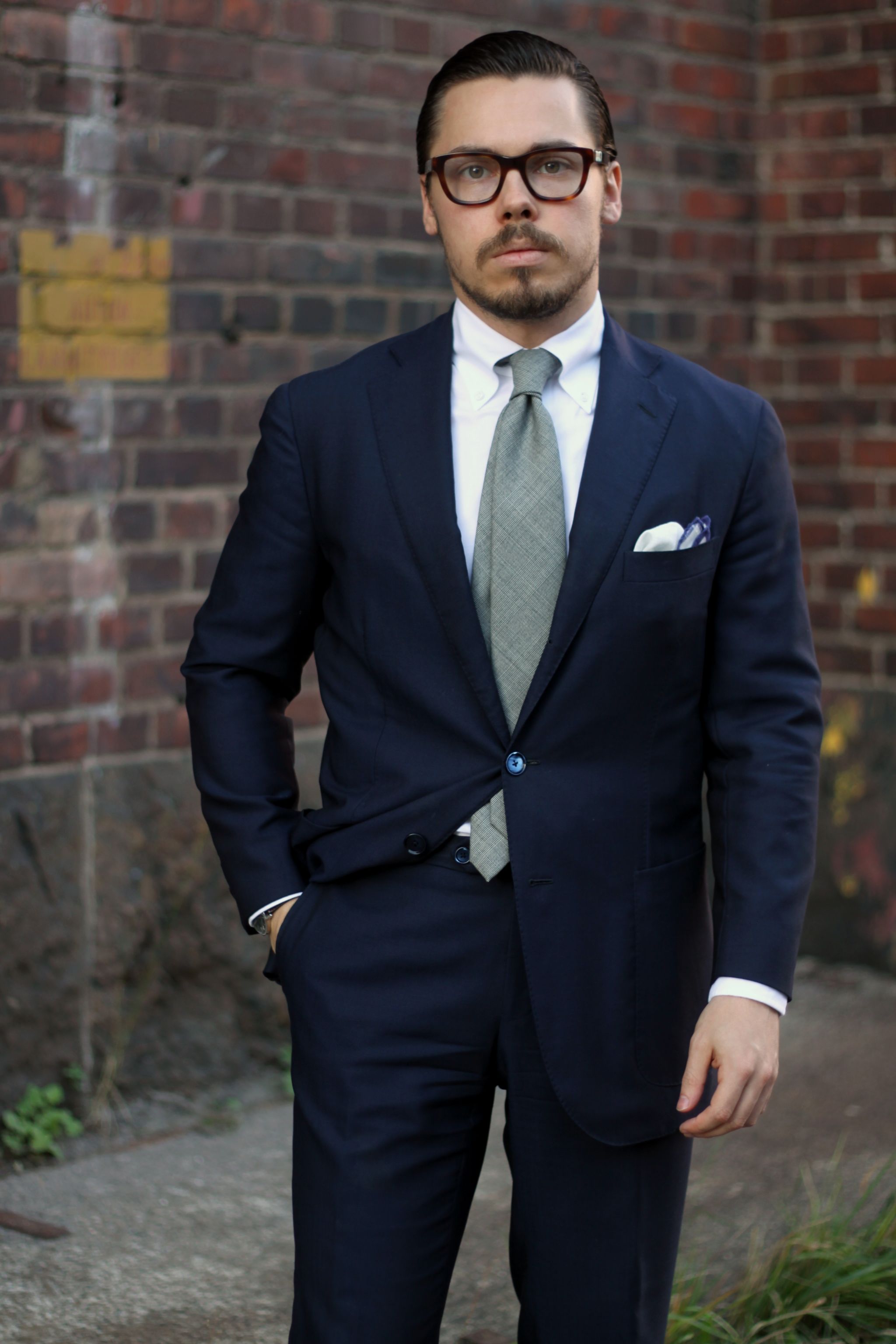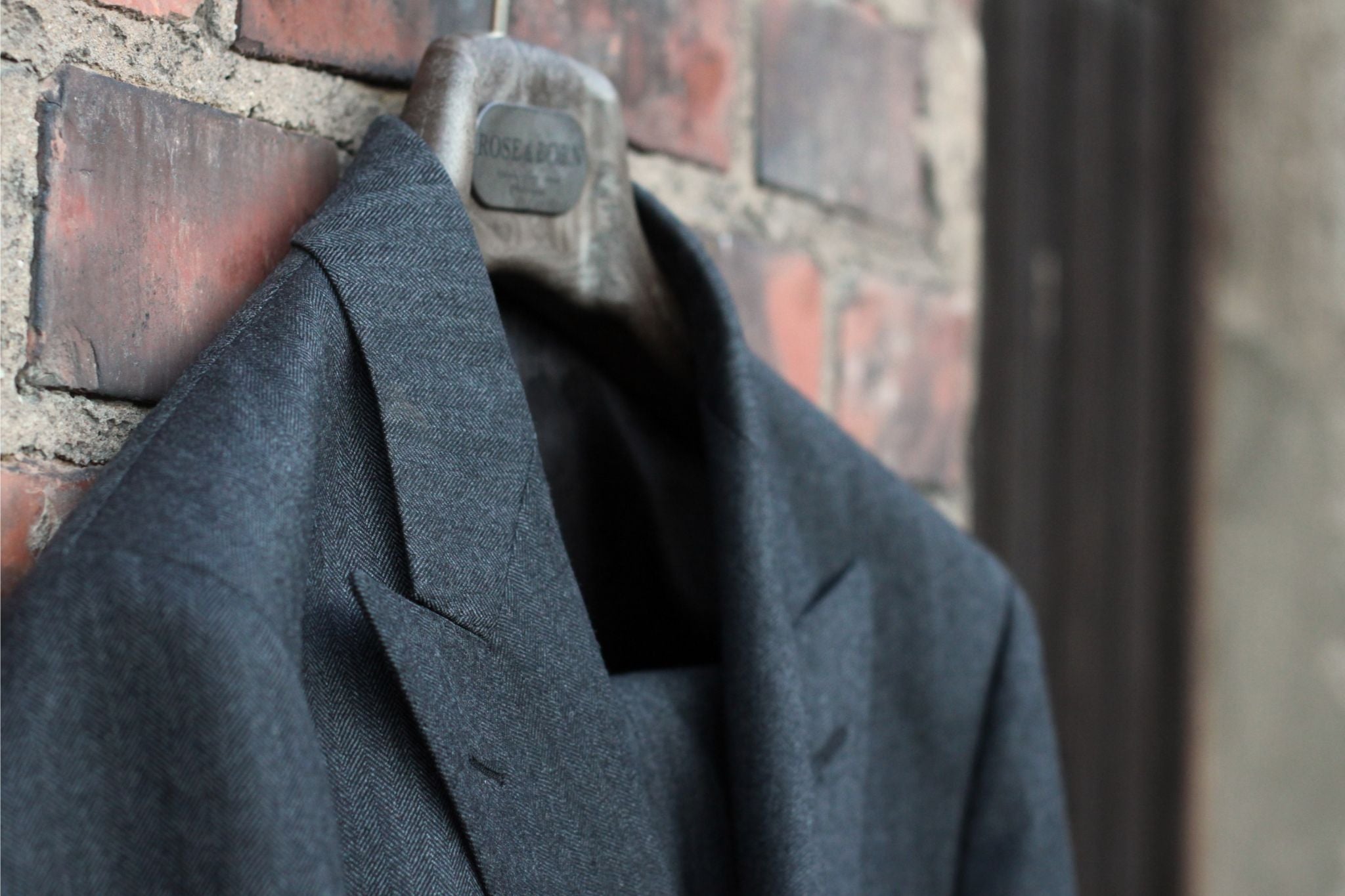What things to consider when buying a suit? Today I give you five quick tips on "how to buy a business suit". Or in fact there is ten things to pay attention to. As all of you know fit is the most important thing in terms of buying any garment. Therefore there is five particular points to remember when you next time look for a new suit.
Buying your first business suit - Prioritize
In case you only have one suit in your wardrobe you should make sure that it is dark in color, preferably blue or grey. Also make sure that it is timeless in style. The classic choice of workplace style is the navy or dark blue suit. That should be your first purchase. After that go for charcoal gray. My recommendation is that at least three first suits that you buy should be in darker shades of blue or grey. The black suit might be tempting but that should be avoid. And remember that in terms of color dark shades are preferable as they are more formal and more versatile options than lighter tones.
id="attachment_9529"

One of the most classic business suit options - dark blue single-breasted wool suit.
Buy less - buy better
Prefer quality over quantity. By doing this you will end up having clothes in your wardrobe that you wear more often, feel better when you wear it, and that will even last longer than the cheap ones with lower quality. Remember that the right 800‚¬ or 1000‚¬ suit, fitted by a tailor, is better than two lousy fitting 400‚¬ suits.
id="attachment_9519"

Pay attention to the quality of finishing and details.
Go for versatility - avoid risky choices
The weightless vicuna blends or some fine-as-silk super 180's wool fabrics can sound like a good idea. And they would probably look really good. But they are also a pain to take care of. Instead for example all-season mid-weight cloths feel good through the year. And they are much easier to maintain in good shape.
id="attachment_9497"

Restrained micro-check pattern is a versatile option for a summer suit.
Maximize utility
Chosen carefully, the three basic suits can basically constitute an entire wardrobe. Keep in mind that versatile selection can in fact be achieved with very few sets of clothes. For example a man with only three suits, three shirts, three ties, and two pairs of shoes already has 54 different combinations to select from. The secret here is to keep your garments simple, classic and interchangeable.

First three suits you buy should be plain and simple.
Pay attention to the fit
If you don't know or you are not sure how your suit should fit, that is the part you need to start from. Most of men don't really know what a fitted suit means. Below you will find six simple things to pay attention to. And after you have learned how your suit should fit you should find a good and trustworthy tailor who can alter your suits to fit properly.

Remember that when it comes to acquiring a new business suit your tailor is your best friend.
Shoulder and lapel
How your jacket fits at the shoulder is probably the most important individual point. It also is the first sign whether a man really knows his own size and how his jacket should fit. Look for higher, smaller armholes and narrower sleeves. The jacket's shoulder seem should sit on your shoulder. Your jacket fits properly if there is no overhang at the shoulder pad or, conversely, your shoulder does not bulge out at the top of the sleeve. Remember that you should have a smooth curving line falling from sleeve head all the way to the cuff. There should be no outline of your shoulder appearing in the sleeve. And the sleeve's head should never sag.
Collar
Make sure the collar of your jacket sits well on the shoulders and do not buckle or pucker, stand away or conceal your shirt collar. It is a good rule that one 1-1,5cm of shirt collar should be visible at the back.
Waist
First of all keep in mind that the correct waist measurement is not at your hips. Nor is it at your belly button. It is halfway in between. This information and getting to know your right waist measurement may come as a little surprise at first. But eventually it will make your suits and jackets to fit better. There should never be any creases or ripples radiating from the fastened button. If there are and they are not a result of a fabric choice, switch up a size. Or lose some weight.
Jacket length
There are many different rules or ways to define the right length of a jacket. And this is also a matter of taste. And even more a matter that depends on your own length and body type. In principle, the bottom hem should be level with your knuckles. But most of all your jacket should always be long enough to cover your rear.
Sleeve length
Getting the sleeve length right is not as easy as it could sound. Sleeve length is also in a way a matter of taste. Remember that 1-1,5cm of shirt cuff should always be visible under your jacket sleeve. If you want to be classic, a good thumb rule is that the sleeve should rest about 1,5cm below your wristbone. And never should the sleeves reach farther than the point where the base of the thumb meets the wrist.
Trouser length
Break or no-break is a matter of taste. But remember that in any case only a little cloth should ever drape on your shoes. The hem of your pants should cover the laces of your shoes and slope slightly downward toward the heel, stopping about 2,5cm above the welt. The front crease of your trouser leg should break slightly at mid-shin. Or you can go for the "Italian look" and no-break.
 One of the most classic business suit options - dark blue single-breasted wool suit.
One of the most classic business suit options - dark blue single-breasted wool suit.
 Pay attention to the quality of finishing and details.
Pay attention to the quality of finishing and details.
 Restrained micro-check pattern is a versatile option for a summer suit.
Restrained micro-check pattern is a versatile option for a summer suit.
 First three suits you buy should be plain and simple.
First three suits you buy should be plain and simple.
 Remember that when it comes to acquiring a new business suit your tailor is your best friend.
Remember that when it comes to acquiring a new business suit your tailor is your best friend.

Leave a comment